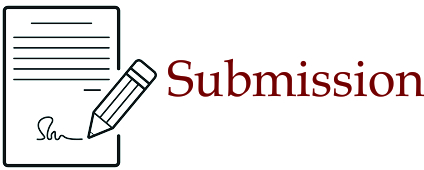- Focus and Scope
- Section Policies
- Peer Review Process
- Publication Frequency
- Open Access Policy
- Archiving
- Publication Ethics
- Screening for Plagiarism
- Review Guidelines
- Indexing
Focus and Scope
J-MPI (Jurnal Manajemen Pendidikan Islam) focuses on the publication of scientific research result related to :
- Islamic Education Management
- Islamic Education Leadership
- Islamic School Management
- School Supervision and
- Innovation in Educational Management
Section Policies
Articles
Peer Review Process
- Every article sent by author to J-MPI (Jurnal manajemen Pendidikan Islam) will be checked by editor for early screening, especially for suitability of scope and level of similarity.
- We are against plagiarism, therefore we only accept articles that have a maximum level of similarity of 30% which we check with the Turnitin application
- Manuscript which are not suitable with the journal criteria based on the screening by editor will be rejected.
- Manuscript which are suitable with the criteria of the journal will be sent to two reviewers with the method of single-blind.
- Then, Editor makes decision based on the recommendation from reviewer with these possibilities : rejected, need revision or accepted. Editor has the right to decide article which will be published.
- Editor informs the decision to author.
Publication Frequency
J-MPI (Jurnal Manajemen Pendidikan Islam) publish biannually (twice a year), on June and December
Open Access Policy
this journal is an open access journal which provides immediate, worldwide, barrier-free access to the full text of all published article without change readers or their institutions for access. readers have right to read, download, copy, distributes, print, search or link to the full texts of all article in Journal Managemen Pendidikan Islam.
This journal provides immediate open access to its content on the principle that making research freely available to the public supports a greater global exchange of knowledge.
Archiving
This journal utilizes the LOCKSS system to create a distributed archiving system among participating libraries and permits those libraries to create permanent archives of the journal for purposes of preservation and restoration. More...
Publication Ethics
Our ethic statements are based on COPE’s Best Practice Guidelines for Journal Editors.
Publication decisions
The editor is responsible for deciding which of the articles submitted to the journal should be published.
The editor may be guided by the policies of the journal's editorial board and constrained by such legal requirements as shall then be in force regarding libel, copyright infringement and plagiarism. The editor may confer with other editors or reviewers in making this decision.
Fair play
An editor at any time evaluate manuscripts for their intellectual content without regard to race, gender, sexual orientation, religious belief, ethnic origin, citizenship, or political philosophy of the authors.
Confidentiality
The editor and any editorial staff must not disclose any information about a submitted manuscript to anyone other than the corresponding author, reviewers, potential reviewers, other editorial advisers, and the publisher, as appropriate.
Disclosure and conflicts of interest
Unpublished materials disclosed in a submitted manuscript must not be used in an editor's own research without the express written consent of the author.
Duties of Reviewers
Contribution to Editorial Decisions
Peer review assists the editor in making editorial decisions and through the editorial communications with the author may also assist the author in improving the paper.
Promptness
Any selected referee who feels unqualified to review the research reported in a manuscript or knows that its prompt review will be impossible should notify the editor and excuse himself from the review process.
Confidentiality
Any manuscripts received for review must be treated as confidential documents. They must not be shown to or discussed with others except as authorized by the editor.
Standards of Objectivity
Reviews should be conducted objectively. Personal criticism of the author is inappropriate. Referees should express their views clearly with supporting arguments.
Acknowledgement of Sources
Reviewers should identify relevant published work that has not been cited by the authors. Any statement that an observation, derivation, or argument had been previously reported should be accompanied by the relevant citation. A reviewer should also call to the editor's attention any substantial similarity or overlap between the manuscript under consideration and any other published paper of which they have personal knowledge.
Disclosure and Conflict of Interest
Privileged information or ideas obtained through peer review must be kept confidential and not used for personal advantage. Reviewers should not consider manuscripts in which they have conflicts of interest resulting from competitive, collaborative, or other relationships or connections with any of the authors, companies, or institutions connected to the papers.
Duties of Authors
Reporting standards
Authors of reports of original research should present an accurate account of the work performed as well as an objective discussion of its significance. Underlying data should be represented accurately in the paper. A paper should contain sufficient detail and references to permit others to replicate the work. Fraudulent or knowingly inaccurate statements constitute unethical behavior and are unacceptable.
Originality and Plagiarism
The authors should ensure that they have written entirely original works, and if the authors have used the work and/or words of others that this has been appropriately cited or quoted.
Multiple, Redundant or Concurrent Publication
An author should not in general publish manuscripts describing essentially the same research in more than one journal or primary publication. Submitting the same manuscript to more than one journal concurrently constitutes unethical publishing behaviour and is unacceptable.
Acknowledgement of Sources
Proper acknowledgment of the work of others must always be given. Authors should cite publications that have been influential in determining the nature of the reported work.
Authorship of the Paper
Authorship should be limited to those who have made a significant contribution to the conception, design, execution, or interpretation of the reported study. All those who have made significant contributions should be listed as co-authors. Where there are others who have participated in certain substantive aspects of the research project, they should be acknowledged or listed as contributors.
The corresponding author should ensure that all appropriate co-authors and no inappropriate co-authors are included on the paper, and that all co-authors have seen and approved the final version of the paper and have agreed to its submission for publication.
Disclosure and Conflicts of Interest
All authors should disclose in their manuscript any financial or other substantive conflict of interest that might be construed to influence the results or interpretation of their manuscript. All sources of financial support for the project should be disclosed.
Fundamental errors in published works
When an author discovers a significant error or inaccuracy in his/her own published work, it is the author’s obligation to promptly notify the journal editor or publisher and cooperate with the editor to retract or correct the paper.
Screening for Plagiarism
J-MPI (Jurnal Manajemen Pendidikan Islam) strongly opposes plagiarism. J-MPI is committed to block plagiarism, including self-plagiarism.
Authors must ensure that they have written a completely original work, and if the author has used the work and/or words of others that have been cited or quoted properly. Manuscript found with such problems are automatically rejected. Also, the article must have not been published everywhere. The author also respects the writing in the J-MPI (Jurnal Manajemen Pendidikan Islam) from excessive publication, duplication, or fraud.
J-MPI (Jurnal Manajemen Pendidikan Islam) will use Turnitin's originality checking software as the tool in detecting similarities of texts in article manuscripts and the final version articles ready for publication. A maximum of 30% of similarities is allowed for the submitted papers. Should we find more than 30% of the similarity index, the article will be returned to the author for correction and resubmission.
Review Guidelines
General
- Give comments on the incorrect parts/ need changes
- Comment on the right side of the incorrect parts/need changes
Detail
- Title: Effectivity, Spesification, and Clarity
- Abstract: Describe the essence of the article
- Keywords: Define the field, topic, research issue, that are covered by article
- Pendahuluan: Up-to-date, Originality, Topic Relevance, Compatibility, important reason of the research object
- Research Method: Must emphasize on the procedure and data analysis for empirical study.
- Results and Discussion: recent finding, relevance with the related researchers., and scientific contribution from finding/ idea for development of practice and knowledge.
- Conclusion: Logical, Valid, Brief and Clear.
- Suggestion: For practical treatment, development of new theory, and further research
- Picture/Table: In the centre position, uncropped, good quality to see, Picture/ Table Title is written with capital.
- References: Minimum 15 references in which 80% are from journal articles which are published in the last 15 years
Complete Manuscript Review Process
- Writing: Is the manuscript easy to follow? Does it have logical development and clear organization?
- Is the manuscript easy to understand?
- Pay attention to the big problem with mechanic, grammar, spelling, and punctuation? (If there are only small mistakes, give notes in the incorrect parts to inform writers. If there are consistent mistakes in almost all parts, just choose one or two as examples: do not edit all parts
- Abbreviation: Must be used wisely so that the reader do not feel difficult to remember what is represented by the abbreviation.
- Follow the style, format and other journal rule.
- Citation must be provided to give information-based evidence from outer source.
Decision Making
- Accept Submission
- Revision Required
- Resubmit for Review
- Resubmit Elsewhere
- Decline Submission
















